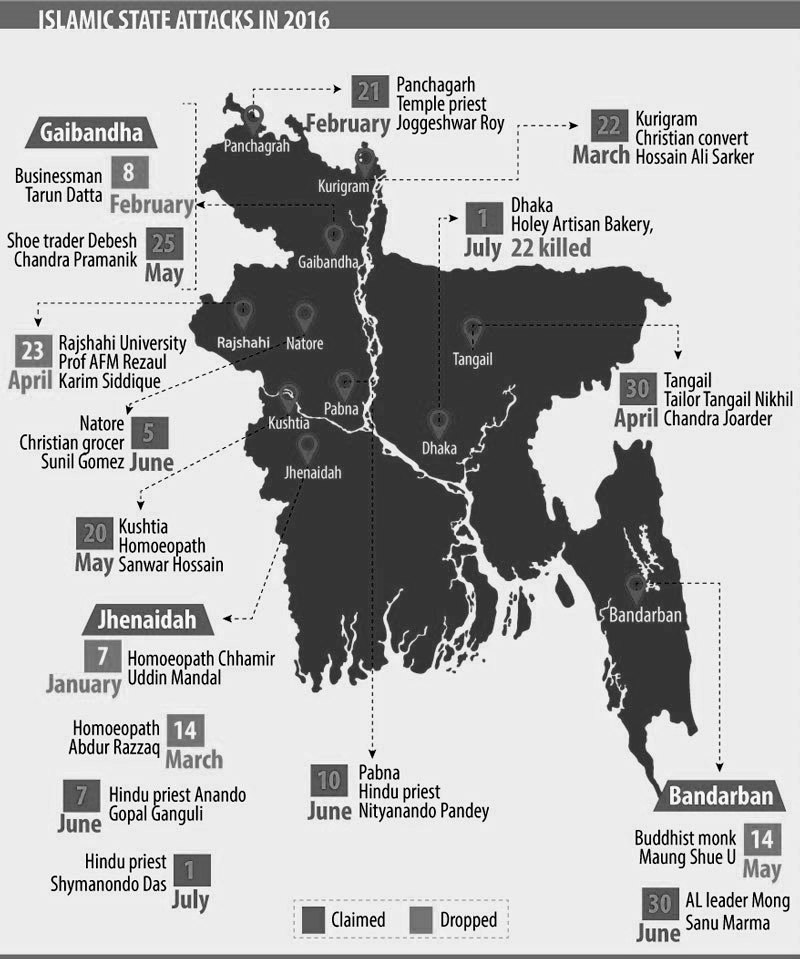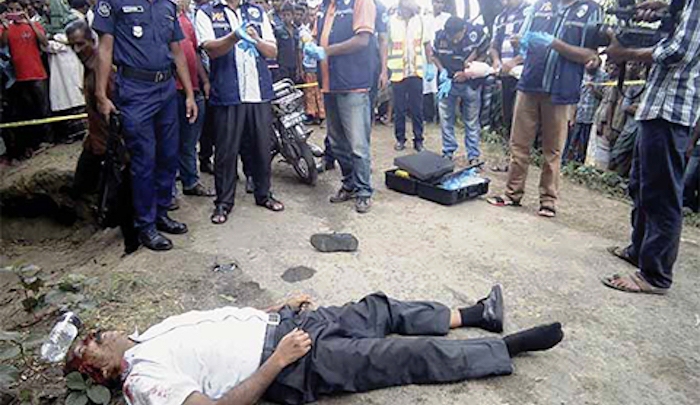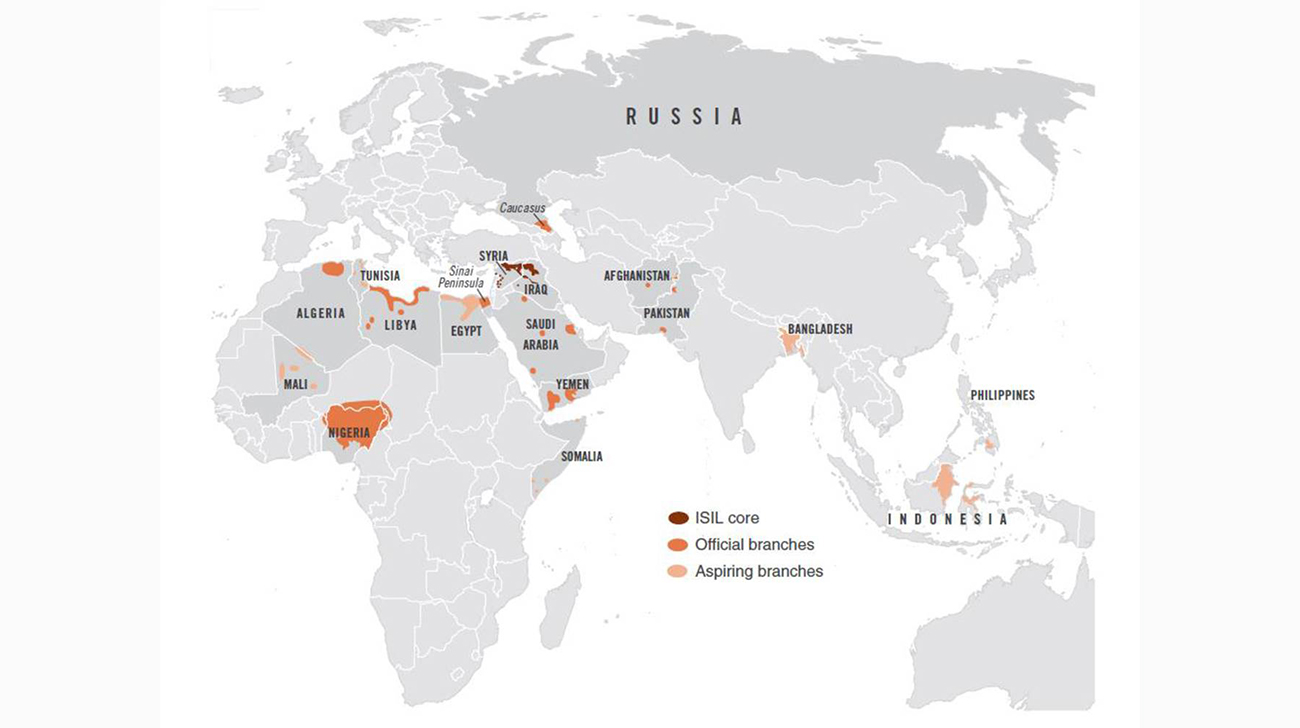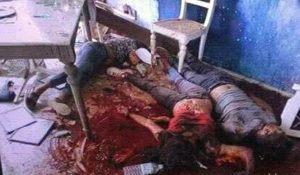Terrror Attack by the Islamic State in the Islamic State of Bangladesh
For years, Bangladesh has presented a paradox to outsiders. The small, densely packed South Asian nation is among the world’s poorest. It is often ranked as one of the world’s most corrupt places. Its political system has repeatedly been jolted by instability. And its territory is deeply vulnerable to the effects of climate change. Mega-quake’s are also quite imminent in this world’s most densely populated nation.

On July 1st 2016, gunmen took multiple hostages at the Holey Artisan Bakery in Dhaka’s diplomatic area. Reports said, the siege lasted almost 10 hours. Six gunmen were shot dead by security forces, while over 20 hostages—mostly foreigners—were killed.
“Most (of) them had been brutally hacked to death with sharp weapons,” Bangladesh army spokesman stated.
A map from the National Counter-terrorism Center shows the worldwide expansion of IS as of August 2016.Apart from being fully operational, middle east-based Islamist terrorist outfit Islamic State has grown its root into Bangladesh, reports US news channel NBC.
The following is an article extracted from the New York Post stating and highlighting why the Dhaka terror attack is shockingly unsurprising –
October 30th 2015 – Bangladesh Pushes Back as Warnings of ISIS Expansion Gather Steam. The disconnect between Bangladesh and foreign intelligence agencies has confused Bangladeshis and foreigners alike, and could complicate anti-terrorism efforts. Last year in October 2015 the United States officials informed and warned Bangladeshi authorities that they had information suggesting that terrorists linked to the Islamic State were preparing to ramp up terrorist related activity within Bangladesh’s borders.

(MAY 21, 2016) Islamic State murders doctor who “called to Christianity”. The ISIS claimed responsibility for the killing of a 58-year-old homoeopathic doctor in western Bangladesh, as the Muslim-majority country reels under a series of brutal murders of secular activists and minorities by Islamists. Proselytizing for any other religion is forbidden in Islamic law.
Denial is Bliss
But Sheikh Hasina, Bangladesh’s prime minister, has responded to the developments with suspicion and outright skepticism. Even as foreign embassies informed their citizens that they could become terrorist targets, Bangladeshi officials have insisted that the Islamic State, also known as ISIS or ISIL, does not exist in their country. They have noted, pointedly, that the United States has promulgated flawed intelligence in the past, as in the run-up to the Iraq invasion.

Kabir (far right), an undergraduate student at Emory University, Georgia, was visiting family and friends in Bangladesh at the time of the attack, a university spokesman said. Tarushi Jain (far left), 19, an Indian native who was studying at University of California, Berkeley, has also been identified among the dead.
Moreover, mistrust of the United States runs deep in Bangladesh and carries a personal element for Ms. Hasina, going back to the longstanding suspicion that the Central Intelligence Agency had a hand in the 1975 assassination of her father, Sheikh Mujib. More recently, she was disappointed by Washington’s cool response to her party’s controversial 2014 election victory, and by the withdrawal of trade preferences for the garment industry.
“Bangladesh is moving ahead and it’ll do so,” she said. “Let me say one thing: The march forward of Bangladesh can’t be stopped by hurling two bombs or five eggs. Those who are thinking this are making a mistake.”
The emergence of ISIS in a country like Bangladesh where the population is 160 million (Sunni Muslim) could be devastating, derailing years of steady economic growth and potentially spilling into both India and Pakistan. Around a month ago, intelligence agencies from the so-called Five Eyes alliance, which includes Australia, Britain, Canada, New Zealand and the United States, received information that militants were planning an attack on foreigners in Bangladesh.
Ignorance is also Bliss
“The way this government is denying the existence of Islamic State, it is not acceptable at all,” said Mizanur Rahman Khan, a journalist at Prothom Alo, a prominent daily newspaper, who last month received a written threat on his mobile phone from “Islamic State Bangladesh” after he wrote an article about Uighur Islamic terror groups in China.
“Stop reporting against Islam and Muslims’ interests, otherwise we’re here to push you down to hell,” the message said.
Two weeks later, a stranger stopped him as he was riding a rickshaw and threatened him with a gun; he escaped on foot into a candy store. When he reported the episode to the police, he said, an official told him to stop riding rickshaws. Since then, he has stopped making television appearances, and, on the advice of his editor, varies the route he takes to work.
“We are in a very difficult position to understand the real danger,” he said. “We are not hearing anything from the government, or from the U.S. side, about what was the threat, what was the reaction of the government, why they are not cooperating.”
See the Complete list of Incidence on Wikipedia.
In the last few months, Bangladesh has witnessed killings of secular bloggers, atheists, gay rights activists, and members of religious minorities by Islamists.








